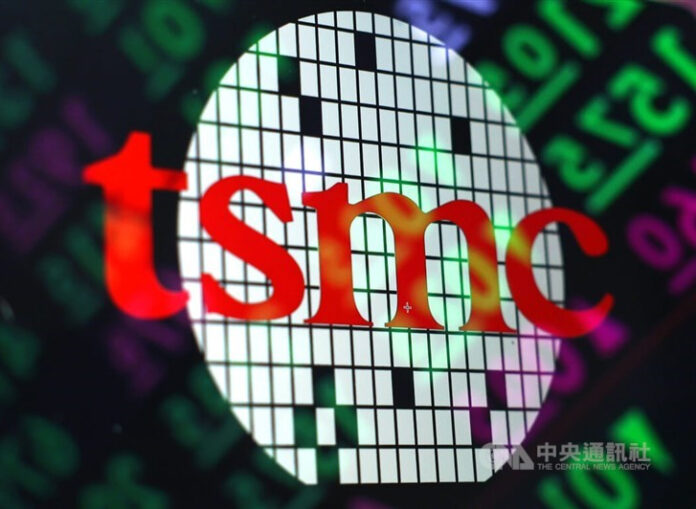Taipei, Taiwan — Taiwan Semiconductor Manufacturing Co. (TSMC) is projected to increase its share of the global pure-play foundry market to 66% in 2025, according to the latest research by U.S.-based market advisory firm International Data Corp. (IDC). This marks a significant growth from its current 64% share, with the global integrated circuit (IC) market expected to see a robust 15% growth due to surging demand for artificial intelligence (AI) applications and high-performance computing (HPC).
TSMC’s Expanding Role in Global Semiconductor Production
TSMC, the world’s leading contract chipmaker, has seen its share of the so-called Foundry 1.0 market — the traditional pure-play wafer foundry sector — grow from 59% in 2023. The company has consistently been at the forefront of semiconductor innovation, and its share is expected to further expand in the coming years due to the ongoing rise of AI technology.
The demand for advanced chips is particularly strong in sectors such as AI and high-performance computing (HPC), with TSMC expected to continue its dominance in these areas. IDC’s report highlights that TSMC is also poised to make strides in the emerging Foundry 2.0 market, which encompasses wafer foundries, integrated device manufacturing, photomask production, and advanced packaging services.
AI and 2-Nanometer Chips Drive Growth
One of the key drivers of TSMC’s projected growth is the increasing demand for AI-driven chips. IDC predicts that TSMC, along with competitors like Samsung and Intel, will begin mass production of advanced 2-nanometer process chips in 2025, which will further elevate the company’s market share.
Wafer production overall is expected to grow by 7% in 2025, with production of advanced chips utilizing the latest processes projected to increase by 12%. Additionally, IDC forecasts that the average capacity utilization rate for sophisticated processes will exceed 90%, underscoring the rapid growth in demand for high-end chips.
Boom in Advanced Packaging Services
TSMC is also set to benefit from an uptick in demand for advanced IC packaging services. As the need for cutting-edge packaging technology intensifies, TSMC is expected to see its production of 3D Chip-on-Wafer-on-Substrate (CoWoS) services double in 2025, increasing from an expected 330,000 units in 2024 to 660,000 units in 2025.
The strong demand for these advanced packaging services is largely driven by AI chip designers, such as Nvidia, and cloud-based service providers seeking to upgrade their infrastructure.
Memory Chip Market Boosted by AI
IDC also forecasts that the memory chip segment will experience significant growth, driven by the increasing use of high-bandwidth memory (HBM) in AI accelerators. The memory chip market is expected to grow more than 24% year-over-year in 2025, largely due to the penetration of high-end products such as HBM3 and HBM3e, which are critical for AI applications. The introduction of the next-generation HBM4 in the second half of 2025 is also expected to drive further demand.
Regional Growth and Opportunities in Asia-Pacific
The Asia-Pacific region is expected to experience strong growth in the IC design segment, with a projected 15% increase in demand due to stabilized inventory levels, growing demand for personal devices, and the expanding use of AI computing across a wide range of applications.
Table: Key Market Forecasts for TSMC in 2025
| Metric | 2025 Forecast | Growth vs 2024 |
|---|---|---|
| TSMC’s Market Share (Pure-Play Foundry) | 66% | +2% |
| Wafer Production Growth | 7% | – |
| Advanced Process Production Growth | 12% | – |
| Capacity Utilization (Advanced ICs) | 90%+ | – |
| 3D CoWoS Production | 660,000 units | +100% |
| Memory Chip Market Growth | 24% | – |
Frequently Asked Questions (FAQs)
Q: What is driving the growth of TSMC’s market share?
A: The main drivers are the surging demand for AI applications, high-performance computing (HPC), and advanced semiconductor processes such as 2-nanometer chips, as well as the growing importance of advanced packaging services.
Q: What is the Foundry 2.0 market?
A: Foundry 2.0 includes a broader range of services beyond traditional wafer foundry operations, including integrated device manufacturing, non-memory processes, photomask production, and packaging services.
Q: How will the memory chip market perform in 2025?
A: The memory chip market is expected to grow by more than 24% year-over-year, primarily driven by the demand for high-bandwidth memory (HBM) products like HBM3, HBM3e, and the upcoming HBM4.
Q: How does TSMC compare to its competitors?
A: TSMC remains the dominant player in the foundry market, with a forecasted market share of 66% in 2025. It is expected to lead in the production of advanced chips, including those for AI applications, alongside competitors like Samsung and Intel.
Q: What are the growth prospects for Taiwan’s semiconductor industry?
A: Taiwan’s semiconductor industry, led by TSMC, is set for strong growth in 2025, with rising demand for advanced technologies like AI, high-performance computing, and cutting-edge memory chips driving the market.
